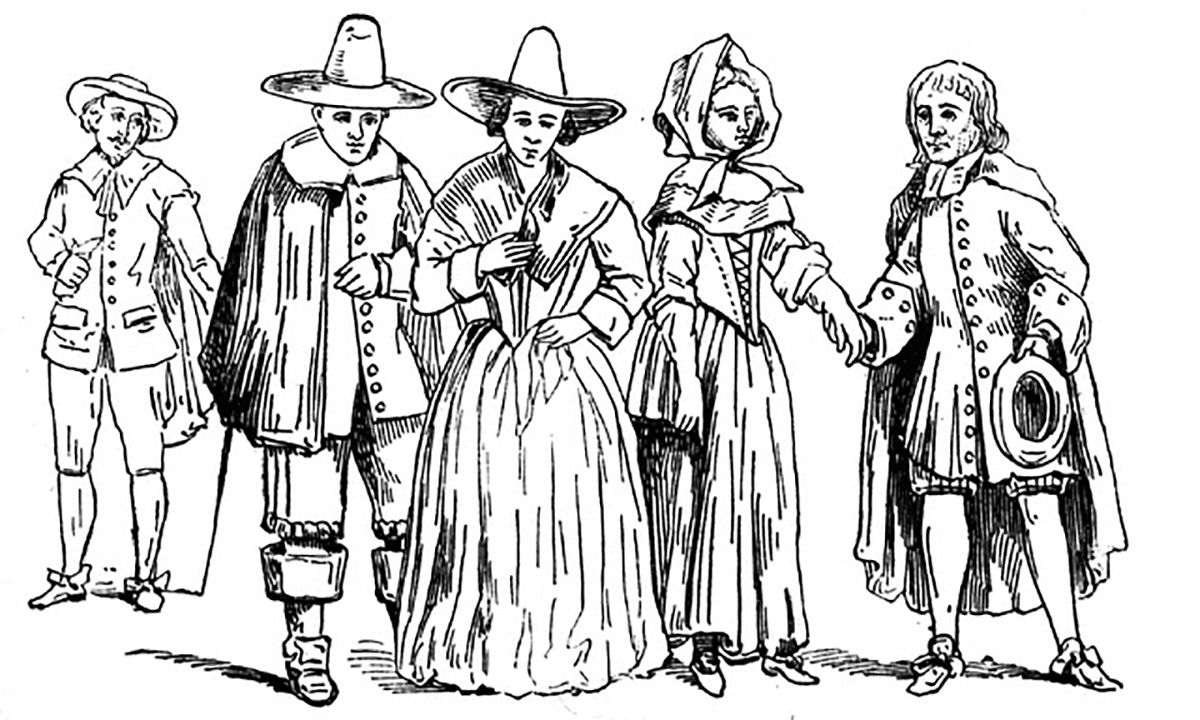Debunking the Myth Surrounding Puritans and Sex

Photo courtesy of the Partnership of Historic Bostons
If you’d never think of Puritans as the type of folks who’d chat openly and explicitly about sex, you’d be wrong. While they have a reputation for being a prudish bunch, the Puritans actually freely expressed their longings to each other.
There’s a myth that the Puritans sought to repress sexual expression, but leading Puritan scholar Dr. Francis Bremer is coming to Boston to debunk it.
“Most people have misconceptions of the Puritans as sort of somber, steeple-hatted bigots with terrible fashion sense,” he says. In reality, though, they were a passionate group of people who were quite eager to fulfill their “duties” in marital relationships.
Bremer, a professor emeritus of history at Millersville University in Pennsylvania, has worked on 16 books about Puritanism. He’s taking a trip out to the Old South Meeting House to dispel myths surrounding the Puritans’ strict and prudish reputation by informing the New Englanders of today about the Puritans’ happy and fulfilling sex lives.
From the beginning, Puritans maintained sexual intercourse was necessary for procreation, but also asserted sex was an important way for couples to bond in a loving relationship.
“They talk about the duty to desire, that you’re supposed to engage in intercourse with your married partner and that this is good,” says Bremer. “There will actually be some people in early New England who are censured by the church because they have deprived their married partner of sex for three months or more and this is seen as bad.”
A prime example of their attitudes about sex can be found in letters between Massachusetts’ first governor, John Winthrop (who famously declared “We shall be as a city upon a hill, the eyes of all people are upon us.”) and his wife, Margaret Tyndall. This passage from a love letter was written in 1618.
Being filled with the joy of thy love, and wanting opportunity of more familiar connection with three, which my heart fervently desires, I am constrained to ease the burden of my mind by this poor help of my scribbling pen, being sufficiently assured that although my presence is that which thou desires, yet in the want thereof these lines shall not be unfruitful of comfort unto thee.
Bremer says when an edition of John Winthrop’s journal from the 1600s was prepared for printing about 200 years later, “the editors left out certain parts because they thought it was too explicit for the audience of the late 19th century.”
He points to the work of poets like Anne Bradstreet, who also expressed her desires in writing after moving to New England in the 1630s.
Whom whilst I ’joy’d, nor storms, nor frosts I felt,
His warmth such frigid colds did cause to melt.
“It was fairly erotic in its ways, certainly for the 17th century,” says Bremer of the poetry. But the Puritans’ chilly reputation is somewhat understandable: This type of language was only acceptable in marital relationships. They kept a long list of things to avoid, including masturbation, adultery, homosexuality, and fornication (or sex between unmarried people).
“While Hester Prynne didn’t exist, there were people who were censured and stood in the pillories with an A on their chest for adulterer or adulteress. Or F for fornication, or whatnot.” he says.
Bremer explains that the Puritans got a bad rap at a time when American society was reacting negatively toward Victorian morality in the late 19th and early 20th centuries. Puritans were supposedly responsible for the roots of the temperance movement, prudish attitudes toward sexuality, and a generally conservative societal outlook. The Puritan stereotype was created because Americans were “looking for people to blame for everything that they didn’t like,” he explains, thus deeming them responsible for the stuffy attitudes of the early 1900s.
The Puritans may never be history’s sexiest religious reformers, but they certainly didn’t command complete sexual repression. Bremer hopes correcting public opinion when it comes to the Puritans’ prudish reputation can help create a more nuanced interpretation of their legacy.
In the last event to wrap up Boston Charter Day programming organized by the Partnership of Historic Bostons, “Passionate Puritans: Marriage, Love, and Sex in 17th-Century Massachusetts” will be held at the Old South Meeting House on October 26 at 6:30 p.m. You can RSVP for the free talk here.


